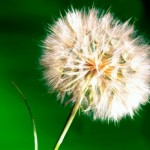 What are Allergies?
What are Allergies?
Allergies, often manifesting as skin irritations, hives or respiratory difficulties in the horse, are the result of an over-reaction of the body’s immune system. Normally, a horse’s immune system functions to protect its body from harmful substances such as bacteria, viruses and parasites. Unlike normal immune reactions that are launched against such real threats to the body, however, allergic reactions are directed at substances that are normally harmless.
Common Allergens
Many common allergens in the horse’s environment appear seasonally, such as pollens from trees, weeds and grasses, biting insects and some types of mould. Others, such as dust and indoor moulds, are present year round. In contrast to seasonal allergies, symptoms from these are typically worse in the winter when horses tend to spend more time indoors. Certain food ingredients, chemicals, drugs and vaccines can also cause allergic reactions in horses. And while we often think of insect allergies being due to bites and stings, horses can even have an allergic reaction to the inhalation of dried pieces of dead insects as well.
On the Rise?
While the proportion of the horse population that suffers from allergies is unknown, those caused by items in the horse’s environment are thought to be on the rise. Whether this is due to an increase in their diagnosis, however, or an actual rise in their prevalence is not certain. Inbreeding, air pollution and the ways in which horses are kept and stabled have been cited as possible factors behind a rise in environmental allergies.
Why do some horses develop allergies while others don’t?
Allergies are thought to arise as the result of the interaction of a number of factors. Researchers have identified three main factors as contributing to the ultimate development of an allergic disease.
Genetics are believed to play some role with certain horses inheriting a predisposition to form sensitizing antibodies to environmental allergens such as moulds, dust, insects and pollens. It has also been observed that horses that are allergic to one antigen tend to be more prone to developing other allergies as well.
The second factor is environmental exposure to the allergen — particularly repeated exposure in small quantities. Allergic reactions don’t usually begin out of the blue. A period of “sensitization” must occur through exposure to a particular allergen in order to build up an allergic response. Once a horse becomes sensitized, it may then take only very small amounts of the allergen to provoke an allergic reaction.
Finally, it has been found that some sort of event that stimulates the immune system (such as a vaccination or viral infection) often plays a role in the subsequent development of an allergic response. In a study where a group of dogs were repeatedly exposed to low levels of a ragweed pollen, for example, only the half that were randomly vaccinated ended up developing an allergic response to the antigen while the other half did not. Respiratory viruses, particularly among young horses, are also known to leave some individuals prone to subsequent hyper-reactivity of the airways.
Tips for reducing your horse’s exposure to allergens:
POLLENS: cut down weeds on property before they pollinate, adjust/reduce turnout times — during the warmer months, outdoor allergen levels often peak around 4pm as the heating of the earth creates air currents that pick up and carry pollens, and air pollution is also often highest at this time of day.
INSECTS: use fly spray, fly masks and sheets, adjust/reduce turnout times, mount fans on stalls (note that fans should always be raised off the ground to avoid blowing dust), eliminate breeding grounds from property where possible, keep compost and manure piles away from barn and pasture.
DUST: ensure proper barn ventilation, particularly in the winter, use low dust bedding, increase turn out time and turn out during barn chores, sprinkle aisles with water before sweeping, wet hay immediately before feeding, avoid feeding round bales.



Having read this I thought it was rather enlightening.
I appreciate you finding the time and energy to put this information together.
I once again find myself personally spending a significant amount of time both reading and posting comments.
But so what, it was still worth it!
Glad you found it worthwhile nevertheless!